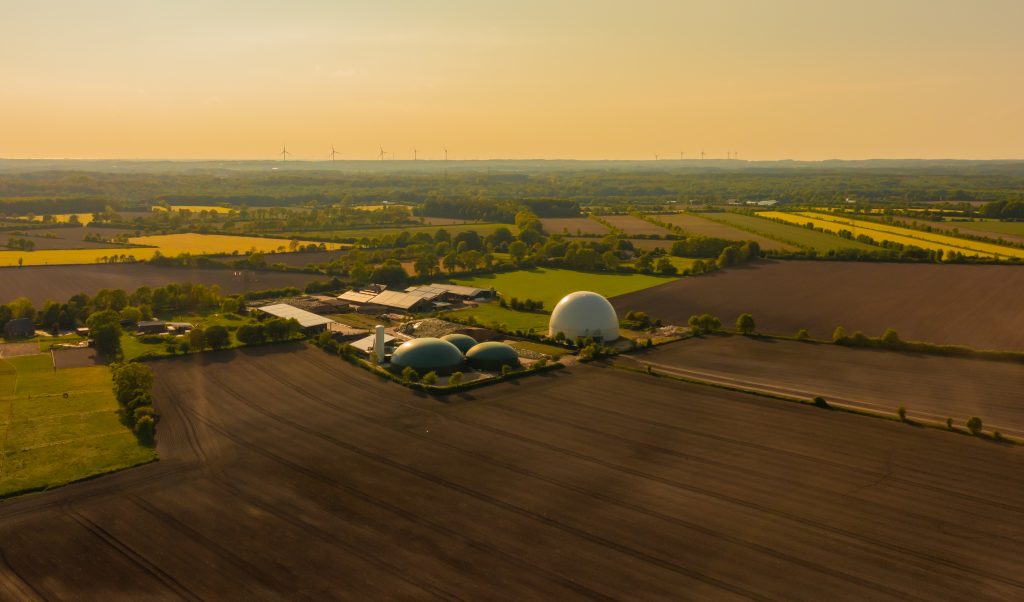
A proposed bioprocessing plant in eastern Oklahoma, designed to convert poultry litter into renewable natural gas and fertilizer, is generating both interest and concern among local residents. Brent Rendel, owner of Rendel Farms, and Miles Walker, Managing Director at Argo, key figures in the project, recently discussed the initiative and the public meetings held to address community questions.
Addressing Poultry Litter Challenges:
Brent Rendel explained the impetus behind the project, stating, “There are a lot of chickens in eastern Oklahoma and chickens are great at eating and they’re also great at pooping, and we’ve gotta do something with all of that litter.”
He highlighted the collaboration with Argo, which proposed a European-established concept of generating renewable natural gas from poultry litter. “We are planning to develop and build a renewable natural gas plant that will be using a significant amount of poultry litter to make – not only natural gas – but also a nitrogen fertilizer product and a phosphorus and potassium solid fertilizer product,” Rendel said.

Argo’s Perspective:
Miles Walker from Argo Development elaborated on the project’s appeal, noting, “The project itself is really exciting because it’s taking this concept that’s well established in Europe and really finding more value for poultry litter.”
He addressed the novelty of using poultry litter in digesters, stating, “But what’s new about this is it’s a litter digester, which really only been done in Europe.” Walker also emphasized the project’s scale, revealing that 164,000 tons of poultry litter will be processed per year.
Addressing Community Concerns:
The public meetings have been crucial for addressing community concerns. Rendel acknowledged the initial pushback, stating, “When they first heard about it, all they heard was mountain of chicken litter, and that’s all they needed to know.”
He explained the plant’s design, which minimizes odor and environmental impact. “The litter immediately goes out of the truck and in through the processing system and into the digesters, which are completely enclosed tanks,” he said, emphasizing the containment of the litter.
“Overcoming the rhetoric online is a challenge, and some people will refuse to believe you,” Rendel admitted, highlighting the difficulty of combating misinformation. However, he stressed the importance of transparency, saying, “It is important that we listen to the public’s concerns, and if we can’t answer those concerns, we’re not doing our job.”
Upcoming Meetings and Next Steps:
Walker announced the next public meeting, stating, “Our next one is April 2nd, and that one’s with the Oklahoma DEQ – really focused on the air permit.” He explained the purpose of the meeting, saying, “We also had to do some air modeling to determine, you know, fence line impacts and a permit to ensure, we protect the acute and chronic hazards that may come from the plant.”
Rendel encouraged public participation, stating, “We want everybody to just show up, because as you know, if you don’t talk about it, you can become misinformed.”
Looking ahead, Walker outlined the project’s timeline, stating, “We’re gonna work our way through a few other permitting items and get through financing, which is obviously a big part of this. We’ll look to move to construction sometime in the late summer or early fall.”
The proposed bioprocessing plant represents a significant development for eastern Oklahoma, offering a potential solution to poultry litter management and a source of renewable energy. The ongoing dialogue between the developers and the community will be crucial in shaping the project’s future.
The April 2nd public meeting will be held at the City of Miami Civic Center Banquet Hall: 129 5th Avenue NW, Miami, OK 74354.

















